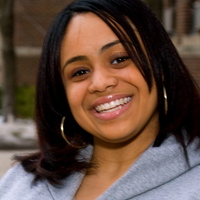A new study from scholars at North Carolina State University and the University of Virginia finds that experiences with racism are associated with increased social consciousness and social justice activism in Black youth.
 “There are many reasons that people become activists on social justice issues, but anyone who is familiar with the civil rights movement of the 1960s could tell you that racism drove activism,” says Elan Hope, lead author of the study and an associate professor of psychology at North Carolina State University. “There is little or no research on the extent to which racism is influencing activism right now.”
“There are many reasons that people become activists on social justice issues, but anyone who is familiar with the civil rights movement of the 1960s could tell you that racism drove activism,” says Elan Hope, lead author of the study and an associate professor of psychology at North Carolina State University. “There is little or no research on the extent to which racism is influencing activism right now.”
Researchers conducted an in-depth survey of a large group of Black adolescents from across the United States. The study participants were between the ages of 13 and 18, with a median age of 15. Study participants were asked about their experiences with three different types of racism – individual, cultural, and institutional – as well as how those experiences affected them.
Individual racism includes racist behavior targeting an individual, such as referring to someone as an ethnic slur. Cultural racism is racism that is embedded in cultural norms, such as media representation of negative stereotypes. Institutional racism is often embedded in policies and regulations, and includes racist behaviors and attitudes found in established institutions – such as police questioning a Black person simply for being in a white neighborhood.
The researchers found that 84 percent of study participants had experienced at least some form of racism. They found there was a relationship between those who had experienced all three types of racism with activism aimed at eliminating that type of racism.
“We’re optimistic that these findings can help us work with young people to not only find healthy ways of dealing with the stresses caused by racism, but also to channel their energy into constructive efforts to change the systems causing those stresses in the first place,” Dr. Hope said.
Dr. Hope joined the faculty at North Carolina State University in 2015. She is a graduate of Smith College in Northampton, Massachusetts, where she majored in psychology and Spanish. Dr. Hope holds a master’s degree and a Ph.D. in psychology from the University of Michigan.
The full study, “Relations Between Racial Stress and Critical Consciousness for Black Adolescents,” was published in the Journal of Applied Developmental Psychology. It may be accessed here.










